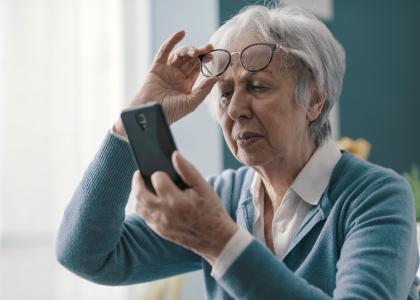PAR-20-243
Remote Patient Monitoring of Chronic Disease in Community Health Centers (REDUCE)

The goal of this study is to evaluate the biomedical effects of these RPM interventions, and to gain insights into barriers and facilitators to implementation and adoption of the programs. Our results will inform efforts to ensure that patients in community health centers can benefit from digital RPM interventions and will lay the foundation for large-scale implementation of such interventions.
Digital Technology to Support Adherence to Hypertension Medications for Older Adults with Mild Cognitive Impairment

Mild cognitive impairment (MCI) is characterized by mild impairment in one or more cognitive functions and is associated with an increased risk for failure to take prescribed medications. Hypertension is prevalent among persons with MCI (PwMCI) and nonadherence to medications increases the risk of accelerated cognitive decline through cerebrovascular disease. Adherence is often only 46% or lower among PwMCI.
Transcending COVID-19 Barriers to Pain Care in Rural America: Pragmatic Comparative Effectiveness Trial of Evidence-Based, On-Demand, Digital Behavioral Treatments For Chronic Pain

For people from the rural America with chronic diseases, the pandemic can not only worsen pain, but also it can trigger anxiety, depression, trouble sleeping, and substance use. One way doctors and health systems are reaching out is by video visits, where patients and their providers communicate online via the Internet.
Bridging Gaps in Healthcare Services for New Families Due to COVID-19

This project aims to evaluate Nursery2Home, a patient-informed digital healthcare intervention that is is specifically responsive to the COVID-19 pandemic's impact on new families, with a focus on health equity for racial/ethnic minority and low income families.
Family-focused vs. Drinker-focused Smartphone Interventions to Reduce Drinking-related Consequences of COVID-19

This project is a Hybrid II RCT/implementation study modifying and testing two of our alcohol smartphone interventions to address the fallout from COVID. This work is an extension of our evidence-based Addiction–Comprehensive Health Enhancement Support system (ACHESS), augmented with COVID resources.
Telehealth 2.0: Evaluating Effectiveness and Engagement Strategies for Asynchronous Texting-based Trauma Focused Therapy for PTSD

Digital mental health (DMH) interventions for PTSD address well-documented barriers to traditional in-person psychotherapy or telehealth delivery of evidence-based treatments (EBTs) for PTSD, but many consumers do not remain engaged. Thus, acceptable, efficient, and engaging forms of EBTs are sorely needed.
Autonomous AI to Mitigate Disparities for Diabetic Retinopathy Screening in Youth During and After COVID-19

COVID-19 has led to disruptions and delays in routine pediatric care, including for children with diabetes. Routine pediatric visits have been reduced or transitioned to telemedicine due to COVID- 19, creating barriers for those without technology and internet capabilities.
Assessing the Effectiveness of a Digital Platform to Support the Mental Health of Healthcare Workers in the Response and Recovery Phases of COVID-19

There is a critical need to develop and test scalable digital approaches which can identify, address and support the well-being of healthcare workers (HCW) over time and beyond the pandemic.
mHealth Mindfulness Intervention for Pregnant Black and Latina Women at Risk of Postpartum Depression

Postpartum depression (PPD) is a debilitating and costly condition affecting over 20% of postpartum women and disproportionately impacts Blacks and Latinas. The COVID-19 pandemic is leading to a severe increase in the rate of depression while the US is already struggling with deep-seated inequities in mental health care for Black and Latina populations.